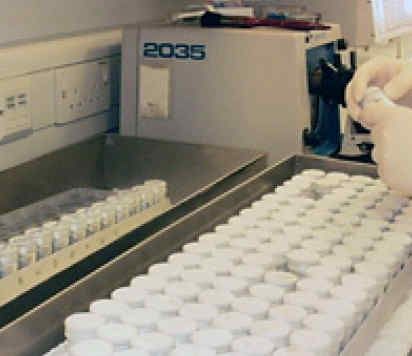Anyone who works with human samples in research at Imperial College, whether under an HTA licence or a ‘recognised’ REC approval, must undertake training on the Human Tissue Act and its related codes of practice.
This is required by Imperial College and builds upon the Human Tissue Authority’s prerequisite that people working under the governance of an HTA licence are suitably qualified and have been trained in techniques relevant to their work as well as are continuously updating their skills.
In addition, staff working with HTA licence 12275 collections outside of the Division of Cancer, are required to complete HTA training.
- Training must be included in induction programmes for new staff, be documented, kept up-to-date, and competency assessed and maintained – including short-term, visiting staff and students.
- Training must be completed before starting work with human samples and updated every two years.
- The chief or principal investigator is responsible for ensuring that they, all their staff, and any students in their research group are appropriately trained for their role and that proof of completion is available for auditing purposes. To check arrangements for individual HTA licences and departments contact your person designated or departmental contact.
If you are using samples under a valid recognised REC approval you are responsible to read and understand the REC application, approval and any amendments. Please note the REC number, the title of the study as well as the expiry date and make sure the storage locations are labelled accordingly.
Training Courses
Training in Good Clinical Practice (GCP) is available from Imperial Research Governance and Integrity GCP Courses | Research and Innovation | Imperial College London. Outside the College, courses include in-house training from the MRC Regulatory Support Centre, NHS consent training for clinicians and NIHR training on informed consent and good clinical practice.Chief or principal investigators are responsible for ensuring all applicable staff have appropriate and up-to-date consent training (renewed every three years) and that proof of completion is available for auditing purposes.
Staff involved in seeking consent must undertake training and be given support in the essential requirements of taking consent. This is also a legal requirement for clinical trials of an investigational medicinal product (CTIMPs) and under the UK Policy Framework for Health & Social Care Research.
Training can be completed online through the Medical Research Council’s Regulatory Support Centre.
If you are involved in research using human samples, whether 'relevant' or 'non-relevant', follow these steps:
1. Complete the MRC training
You must complete:
- the Research and Human Tissue Legislation online module
- the Research and Human Tissue Legislation Assessment – England, Wales and Northern Ireland online module
The pass rate is 70%, and training needs to be completed in one session.
Download and save your certificate. The certificate is valid for two years and you must update your training in due time.
You will need to create a user account. Firefox, Chrome, Internet Explorer or Microsoft Edge are recommended, ensure Javascript and Adobe Flash are up to date and pop-ups enabled. If you have technical problems with the website, contact the MRC’s Regulatory Support Centre.
2. If you work with samples registered under HTA licence 12275
Contact us if you need more information about licence 12275
3. If you work with human samples registered under another HTA licence
Contact the relevant designated individual for the licence.
|
Licence Number |
Licensed Premises |
Sector |
License Type |
Designated Individual |
|
12235 |
Imperial College London |
Anatomy |
Main |
Rachael Waddington |
|
12275 |
Imperial College London |
Research |
Satellite |
Iain McNeish |
|
12388 |
Imperial College School of Medicine |
Research |
Satellite |
John Pepper |
|
12608 |
Imperial College Healthcare NHS Trust |
Research |
Satellite |
Ian Bateman |
|
40044 |
Imperial College Healthcare NHS Trust |
ODT |
Main |
4. If you are unsure whether the human samples you work with are or need to be registered
Contact us for advice
5. If you only work on samples that are exempt from HTA licensing
You do not need to undertake further training. However, make sure you undertake any other regulatory training, and revisit this page if your circumstances change.
If you are not involved in research on human samples, you do not need to undertake HTA training. However, you may need other training if you are involved in other activities with human samples, such as human application, anatomy, or teaching. Contact us for advice, and revisit this page if your circumstances change.

